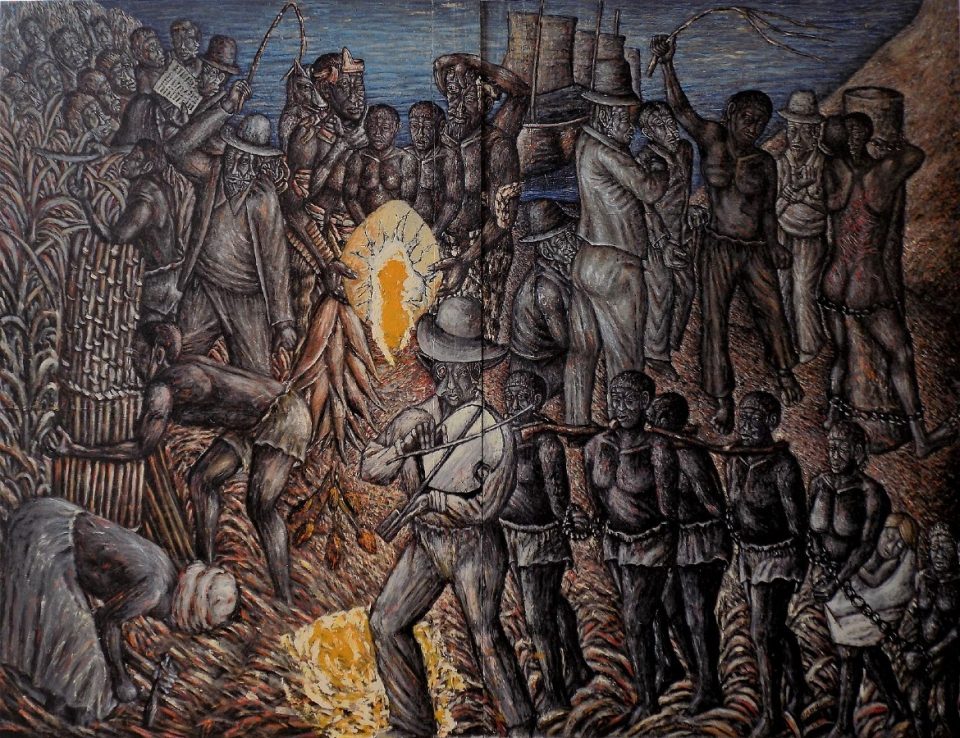I have come to appreciate that African wisdom recognizes that there are other unseen forces in the universe apart from the creator. The Egun (Ancestors) can be redemptive forces, guiding your path through life. One must remember and honor the Ancestors, beginning with your own bloodline and then with those who were forces of good in your livity (life). Next, you connect with those who are role models that you would like to emulate. Connecting with your Ancestors is a way of being.
“It is up to the living to keep in touch with the dead. Man’s power don’t end with death. We just move on to another place. A place where we go and watch over our living family. Respect your elders. Respect your family. Respect your ancestors… Call on your Ancestors… Let them guide you…” ~Daughters of the Dust
The poem, In Praise of the Ancestors by Maizisi Kunene, is a beautiful remembrance that the Eguns are not dead, just not living. Their voices are memories within us. They are the inspirational and insightful thoughts that appear out of “nowhere” in our heads. What song are you singing for your Ancestors? “Tears of Africa” by Mmakgabo Helen Sebidi (featured above), is her song. The painting makes me feel that indeed the Ancestors were singing with her.
I retrieved the poem and the analysis of the poem that follows from The Poetics of Modern African Poetry.
In Praise of the Ancestors
Even now the forefathers still live
They are not overcome by the power of the whirlwind.
The day that sealed their eyes that did not conquer them.
Even the tall boulder that stands over them
Casts only a humble shadow over their resting place
They are the great voice that carries the epics
The Ancestors have come to listen to our songs,
Overjoyed they shake their hands in ecstasy.
With us they celebrate their eternal life.
They climb the mountain with their children
To put the symbol of the ancient stone on its forehead.
We honour those who gave birth to us
With them we watch the spectacle of the moving mists.
They have opened their sacred book to sing with us
They are the mystery that envelopes our dream.
They are the power that shall unite us.
They are the strange truth of the earth.
They came from the womb of the universe
Restless they are, like a path of dreams,
Like a forest sheltering the neighbouring race of animals.
Yes, the deep eye of the universe is in our chest
With it we stare at the centres of the sky.
We sing the anthems that celebrate their great eras.
For indeed life does not begin with us.
In Praise of the Ancestors is structurally organized in four parts. The first part, lines 1-6, celebrates the immortality of the Ancestors; the second part, lines 7-11, explains how the Ancestors interact and intermingle with the living on a continuous basis; part three, lines 12-20, explains the eternal duty of the living towards the Ancestors; while the concluding part, lines 21-24, re-iterates the greatness of the Ancestors in the affairs of the living.
Kunene employs positive imagery to characterize the African cultural heritage, especially as viewed from the point of view of the Ancestors (e.g., “The great voice that carries the epics,” line 6, and the “mystery that envelopes our dream,” line 15). However, he uses negative imagery to describe the European colonizers (e.g., the “power of the whirlwind,” line 2, and the “spectacle of the moving mists,” line 13).
The poem’s title, In Praise of the Ancestors, is instructive and illuminating: it highlights the protagonist’s bold proclamation, that is, to openly declare his affectionate feelings for the non-living souls. Other imagery of the poem which underscores this profusion of love includes: “The Forefathers still live,” line 1; “The Ancestors have come to listen to our songs,” line 7; “We honour those who gave birth to us,” line 12; and “They are the power that shall unite us,” line 16.
The point must also be made that in the African cultural mythos, the celebration of parents or the dead ancestors, is generally regarded as a cardinal virtue that must be encouraged or cultivated. Consequently, the indigenous African peoples not only celebrate the dead ancestors, but they also pay homage or offer sacrifices to them in order to receive their blessings both at home and in the workplace. Kunene’s capitalization of the word, “forefathers”, underscores his respect for the dead ancestors.



